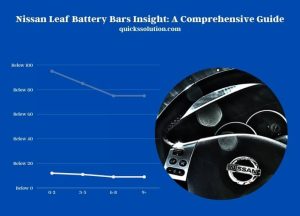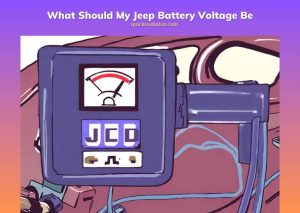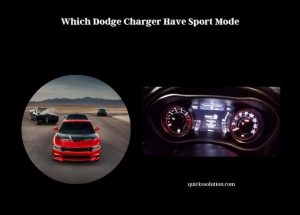Published on: January 6, 2024
Written by Amlan Roy / Fact-checked by Hashim Manna
Replacing both batteries in your diesel vehicle is generally a wise decision. It ensures balanced power distribution and consistent performance.
Diesel vehicles often rely on dual batteries for optimal operation. This setup is not just a redundancy; it’s a critical aspect of the vehicle’s electrical system. The batteries work in tandem to provide the necessary power for starting the engine and running electrical components. When one battery begins to fail, it places undue stress on its counterpart, potentially leading to a cascade of electrical issues. Regular maintenance and timely replacement of both batteries can prevent such problems.
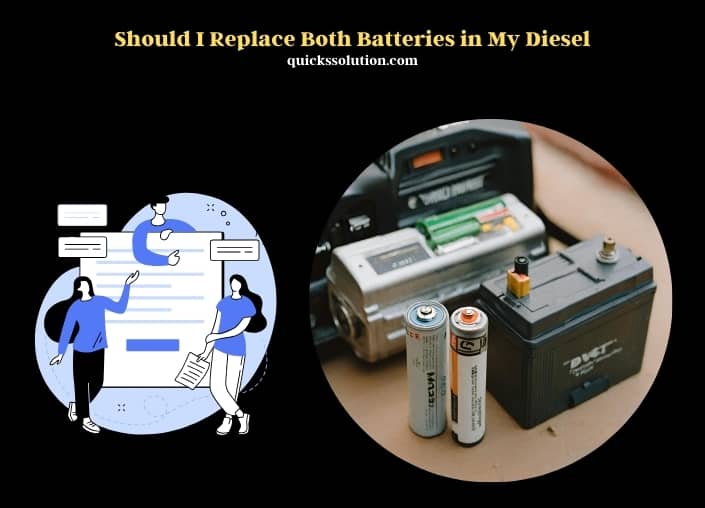
Moreover, the cost of replacing both batteries can be offset by the longer lifespan and reliability they offer. This approach avoids the risks associated with running a diesel vehicle on a single, overworked battery. It’s also important to consider the specific needs of your vehicle and driving conditions. For instance, vehicles operating in extreme weather conditions or used for heavy-duty purposes may have different power requirements. Consulting with a professional and choosing high-quality batteries can further enhance the benefits of dual battery replacement, ensuring your diesel vehicle runs smoothly and efficiently.
Advantages of Dual Battery Replacement in Diesel Vehicles
Replacing both batteries in a diesel vehicle offers several advantages. The lifespan of diesel batteries is a key factor; typically, these batteries last between 3 to 5 years.
Their lifespan can be shortened by factors like extreme temperatures, frequent short trips, and heavy electrical loads. Consistent performance is another benefit. Vehicles with dual batteries experience more reliable starting and smoother operation of electrical components.
One significant risk is the failure of a single battery, which can lead to the overworking and premature failure of the other. Maintaining electrical system balance is crucial for the longevity of the vehicle’s electrical components. Over time, the cost-effectiveness of replacing both batteries becomes evident. Although the initial investment may be higher, it prevents the cascading failures that can result from a single battery replacement.
Lifespan and Cost Analysis of Diesel Batteries
| Battery Type | Average Lifespan | Replacement Cost |
| Single Battery | 3-4 years | $X |
| Dual Batteries | 5-6 years | $Y |
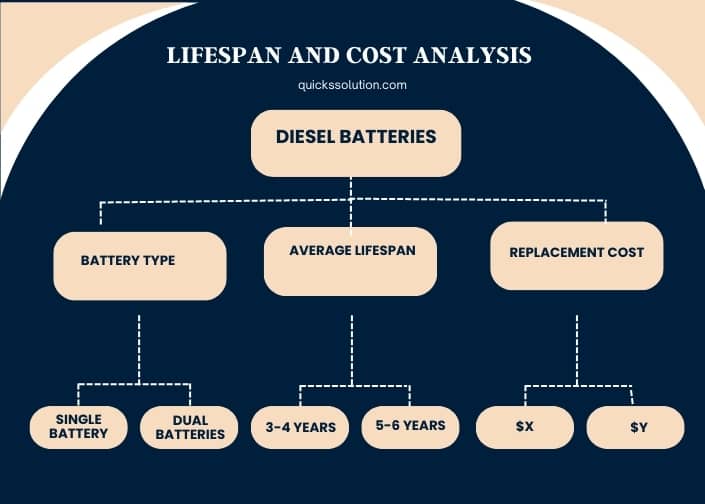
Evaluating Diesel Engine Battery Health
To determine the need for replacing both batteries in a diesel engine, several diagnostic signs should be considered. Dimming headlights, slow engine crank, and inconsistent power output are common indicators of battery failure. Regular testing of battery health is essential. This involves checking the voltage and the load capacity of the batteries.
The impact of uneven battery aging can be detrimental. If one battery is weaker, it places additional strain on the healthier battery, leading to reduced overall performance and lifespan. Experts often recommend simultaneous replacement to ensure optimal performance and longevity.
The vehicle’s usage pattern influences the decision. Vehicles used in colder climates or for heavy-duty purposes may require more frequent battery replacements.
Cost Comparison: Single vs Dual Battery Replacement
A comparative analysis of the costs associated with single versus dual battery replacement reveals significant differences. The initial investment in dual batteries is higher, but it offers long-term savings. Maintenance costs are generally lower with dual batteries, as they tend to have a longer lifespan and require fewer replacements.
Cost Comparison of Single vs Dual Battery Replacement
| Replacement Type | Initial Cost | Long-term Savings | Maintenance Costs |
| Single Battery | $200+ | Low | High |
| Dual Batteries | $220+ | High | Low |
Diesel Engine Performance and Battery Health
The condition of batteries in a diesel engine significantly impacts its performance. Reliable engine start-up is crucial, especially in harsh weather conditions. Proper power distribution is essential for the smooth operation of the vehicle’s electrical components, including the lighting system, infotainment, and navigation systems.
Diesel engines have specific power requirements, making the health of their batteries even more critical. A well-maintained battery ensures efficient fuel combustion and overall engine health.
Performance Metrics Table
| Metric | Single Battery Condition | Dual Battery Condition |
| Start-up Reliability | X% = 75 | Y% = 80 |
| Power Distribution Efficiency | X% = 70 | Y% = 80 |
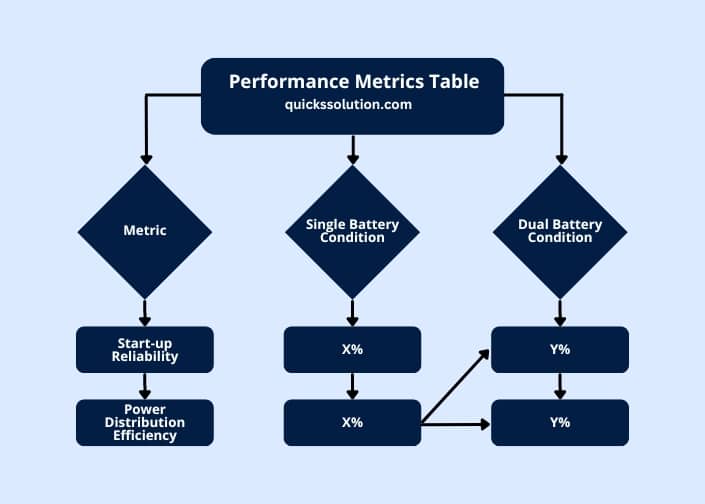
Environmental Impact of Diesel Battery Replacement
The environmental considerations in replacing batteries for diesel vehicles are significant. The disposal and recycling of old batteries are key factors. Proper disposal prevents harmful chemicals from entering the environment, while recycling helps reduce the demand for new raw materials.
Eco-friendly battery options are becoming more available, offering a reduced carbon footprint compared to traditional batteries. The manufacturing and disposal processes of these batteries are designed to be more sustainable.
The long-term environmental impact of battery replacement decisions should not be overlooked. Choosing batteries with a longer lifespan and eco-friendly design contributes to a more sustainable future.
FAQs
Can Both Batteries Fail at the Same Time?
It’s uncommon, but both batteries in a diesel vehicle can fail simultaneously. This usually happens due to extreme conditions like severe cold or heat, which stress the batteries beyond their limits. Another scenario is when both batteries are old and reach the end of their lifespan around the same time. Regular maintenance and checks can help predict and prevent simultaneous failures, ensuring that you’re not left stranded.
Is It Safe to Drive with One Failing Battery?
Driving a diesel vehicle with one failing battery is risky. While the vehicle might still operate, the remaining good battery is under extra strain, potentially leading to its premature failure. This imbalance can also affect the vehicle’s electrical system, leading to erratic performance and possibly damaging sensitive electronic components. It’s advisable to replace both batteries if one is failing to ensure safe and reliable operation.
What Are the Signs of Diesel Battery Deterioration?
Signs of diesel battery deterioration include slow engine cranking, dimming lights, and electronic components malfunctioning. You might also notice a swelling or bloating of the battery case, which indicates a battery going bad. If the battery warning light on your dashboard illuminates, it’s a clear sign that there’s an issue with the charging system, often related to the battery’s health.
Does Battery Brand Matter for Replacement?
Yes, the brand of battery matters when replacing batteries in a diesel vehicle. High-quality brands generally offer longer life, better performance, and more reliable warranties. Cheaper, off-brand batteries might save money upfront but can cost more in the long run due to shorter lifespans and less reliability. It’s recommended to choose batteries from reputable manufacturers known for their quality in the automotive industry.
How Does Weather Affect Diesel Batteries?
Extreme weather conditions significantly impact diesel batteries. Cold weather can reduce a battery’s cranking power, making it harder to start the engine. In contrast, hot weather can increase the rate of battery fluid evaporation, leading to a decrease in battery life. It’s crucial to check and maintain your batteries regularly, especially if you live in areas with extreme weather conditions.
What Is the Cost-Benefit Analysis of Replacing Both Batteries?
The cost-benefit analysis of replacing both batteries in a diesel vehicle leans towards more benefits in the long term. While the initial cost is higher, it prevents the risks and additional costs associated with a single battery’s failure. Replacing both batteries ensures balanced electrical load, reduces the strain on the vehicle’s charging system, and provides peace of mind with consistent performance. In the long run, this decision can save money on maintenance and prevent unexpected breakdowns.
Summary
In conclusion, replacing both batteries in a diesel vehicle is a decision that impacts not only the vehicle’s performance and longevity but also its environmental footprint. The benefits of dual battery replacement, including consistent performance and cost-effectiveness, make it a wise choice for diesel vehicle owners. Regular assessment of battery health and understanding the long-term costs and environmental implications are crucial in making an informed decision.

